The Rob Report
Imagine my surprise when the sheriff phoned to tell me they had discovered my wife’s fingerprints all over the house.
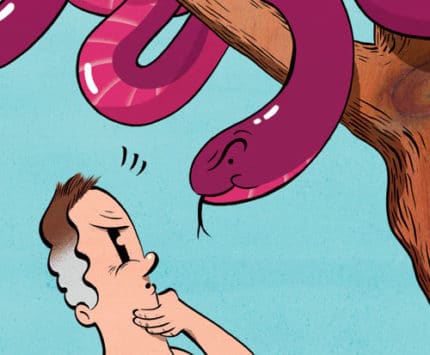
I was hiking in the woods this past fall and stepped on a snake. It was an Inland Taipan, the most toxic snake in the world. One bite can emit enough poison to kill 250,000 mice, or 100 humans—provided they’re not obese, in which case it would only kill 50 or so. It is a shy reptile, once found only in central Australia. But due to global warming, it is now found in Orange County, Indiana, where I stepped on it.

In the middle decades of the 20th century, every community had a draft board, composed of local citizens whose responsibility was to interview young men and discern their fitness for military service. As you can imagine, it was not a wildly popular practice. And when young men stopped cooperating by shooting themselves in the foot, the practice ended.

Every year around Christmas, I think what a burden it is to be Christian and consider joining another religion with fewer Yuletide demands. Addressing the cards and pretending I like fruitcake leave me exhausted. I toyed with the idea of becoming a Buddhist monk, which is just exotic enough to be hip, but then I remembered they have to set themselves on fire if a war comes along. As much as I dislike Christmas, I still prefer it over immolation.
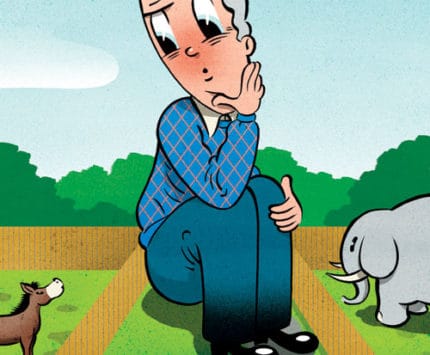
If you haven’t been reading the newspaper or watching the news, you might not realize we’re electing a president this month. It seems like just yesterday that Chief Justice John Roberts, the man in charge of interpreting the Constitution, was bungling the oath of office contained in that document at the last inauguration.
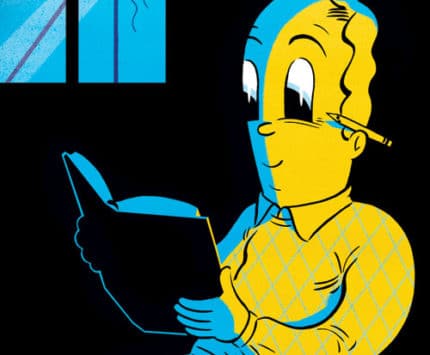
I was reading a home-improvement magazine recently and saw an advertisement for a residential generator. It was being touted as the next must-have appliance, something no respectable household should be without. The ad warned of the perils awaiting the ungenerated—spoiled food, flooded basements, gloom of night, frostbite, heat stroke, starvation, thirst, severed communications, severed limbs, all manner of hazards. The advertisement was sponsored by the local electric company, causing me to wonder if the executives knew something I didn’t about the reliability of our power supply. It felt a bit like Wall Street peddling municipal bonds in anticipation of a stock crash.

When I married my wife 28 years ago, I thought the best part of married life would be the physical part. I conduct a lot of weddings, and every groom-to-be is thinking the same thing—I can tell by the drool. We don’t know what our wives are thinking, and would likely be disappointed if we did. I once read that the male’s desire for sex declines as we age. Fortunately, by the time that happens, we’ve discovered other benefits to marriage, one of which is not having to shop for clothes any longer.
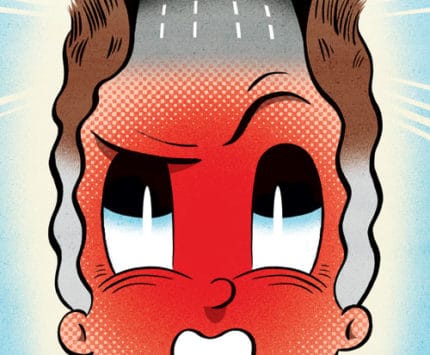
My family and I spend a portion of our year on a farm south of Paoli that has been in my wife’s family since the middle 1800’s. The house was built in fits and starts between 1913 and 1945, as funds and circumstances allowed. We renovated it last year and amidst the moving-day hubbub, I moved a table to the back porch, beside the porch swing and washing machine. We writers are in constant search of Nirvana, and though it took 20 years, I have finally found it next to a jug of Tide and a box of Bounce. I spend my mornings there, looking, in between paragraphs, across the field to the creek, then up the hill and into the woods. It is a pleasant arrangement, writing-wise, except on Mondays, laundry-day, when the erratic thump of the dryer upsets my rhythm. But the dryer was here first and has been grandfathered in, so I defer to it one day a week.
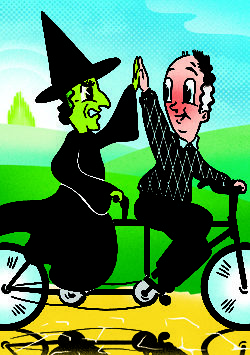
Just when I think things can’t get any worse in our country, I go to the movie theater and watch the previews of the upcoming shows. They are, without fail, movies about futuristic police forces fighting villains in an American city laid waste by a nuclear bomb. It’s hard to tell the good guys from the bad guys because they both wear black and carry guns. When I was growing up, the bad guys had the courtesy to dress in black so we could tell at a glance that they were evil. Then the good guys changed the rules and started dressing like bad guys. Say what you will about bad guys, at least they don’t flout the rules of apparel.
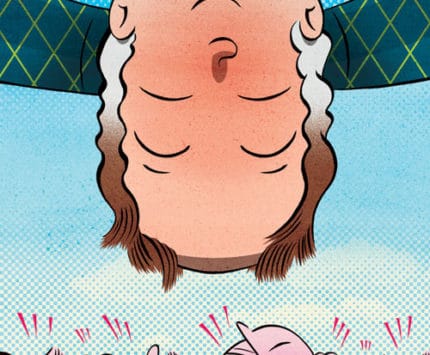
Over the course of my lifetime, by virtue of sheer discipline, I have acquired a number of skills, chief among them my ability to relax. The average American works 1,778 hours a year, while Germans work 1,409. The hardest workers are South Koreans, who work 2,193 hours each year. We’re almost halfway in between them: not the hardest workers, but not the laziest either.

At the end of the year, when our attention was diverted by Christmas, the new owners of our town’s Dairy Queen bulldozed the restaurant’s storage building, which had begun life in 1852 as a house of worship for the Christian Church. It was a modest structure, the Christians not anticipating a wild burst of growth. After they vacated it in the 1870s, it served as a workshop for the town’s tinsmith, a hatmaker’s space, a candy store, a private home, and finally a plumber’s shop, before Pop Logan opened the Dairy Queen in 1953 and used it for storage.

Every spring, I take my shoebox full of tax receipts to Steve Blacketer in Plainfield. I met Steve 31 years ago, and he has done my taxes ever since, keeping me out of jail. Besides a bureaucrat or two at the IRS, Steve is the only person who knows how much my wife and I earn each year. People tend to be secretive about their income, and I’ve never understood why. It is a fairly simple matter to look at someone’s home and discern how much they make. I don’t mind telling you I make somewhere between $10,000 and $150,000 a year.

Have you ever thought about the march of progress? For many millennia, our ancestors lived much the same way. You could die, be brought back to life 10,000 years later, and discover nothing had changed. Food was still wormy and rancid, tools were still made of rocks, folks still walked everywhere, and the Cubs were still losing. Then, a rapid series of developments dramatically increased the rate of human progress: the domestication of animals; the forging of metals; the shift from hunting and gathering to agriculture; the emergence of written language, eventually followed by the printing press, which permitted the dissemination of ideas, which inevitably led to the computer chip, which culminated in our generation’s greatest invention, the battery-powered pepper-grinder.

I recently turned 51 and spent some time on my birthday thinking about the habits I’ve cultivated over the years that have enhanced my life. Probably the most useful habit has been developing a heroic list of prejudices. I’ve made up my mind about a lot of things and am not likely to change it in the 24.1 years the government tells me I have left. These prejudices have been formed after much experience, save me time and trouble, and have been proven right time and again.